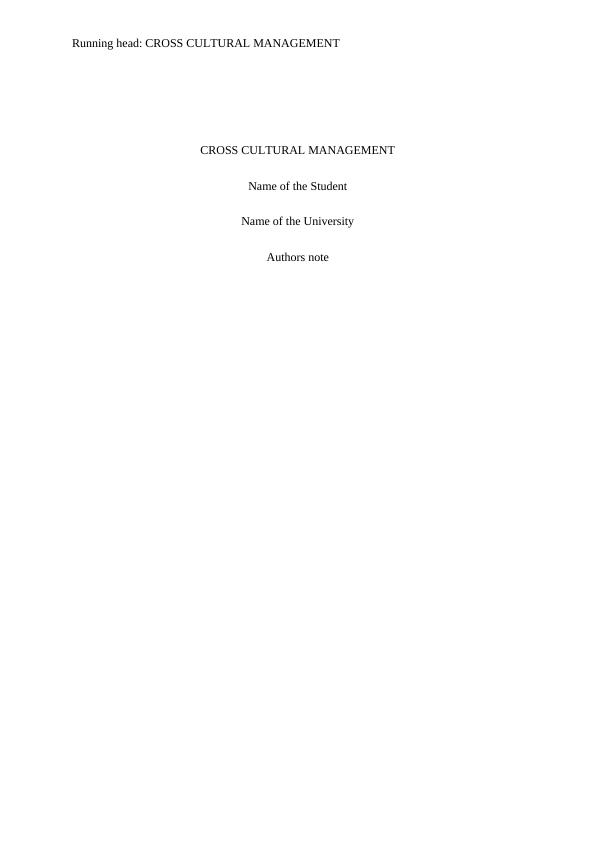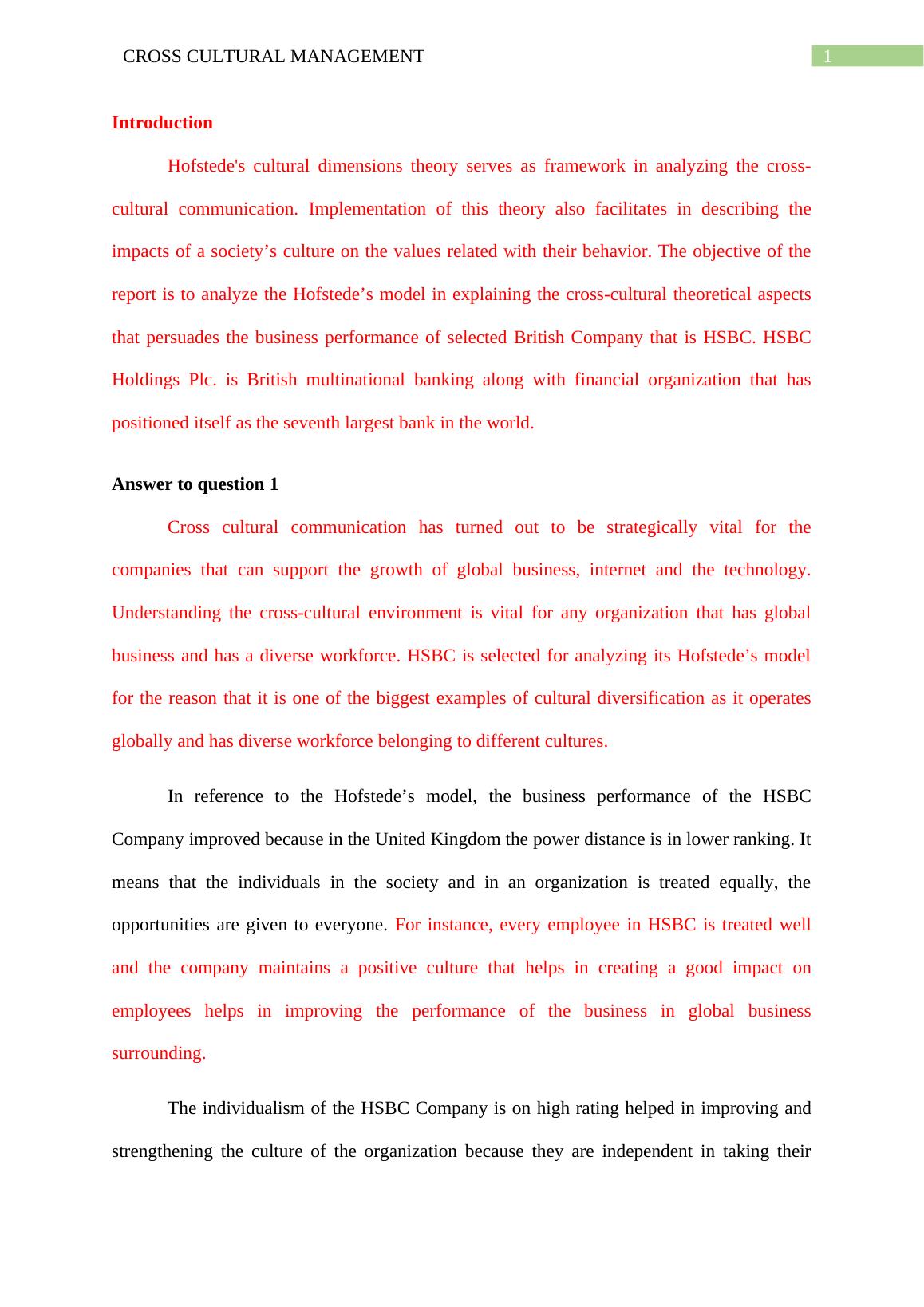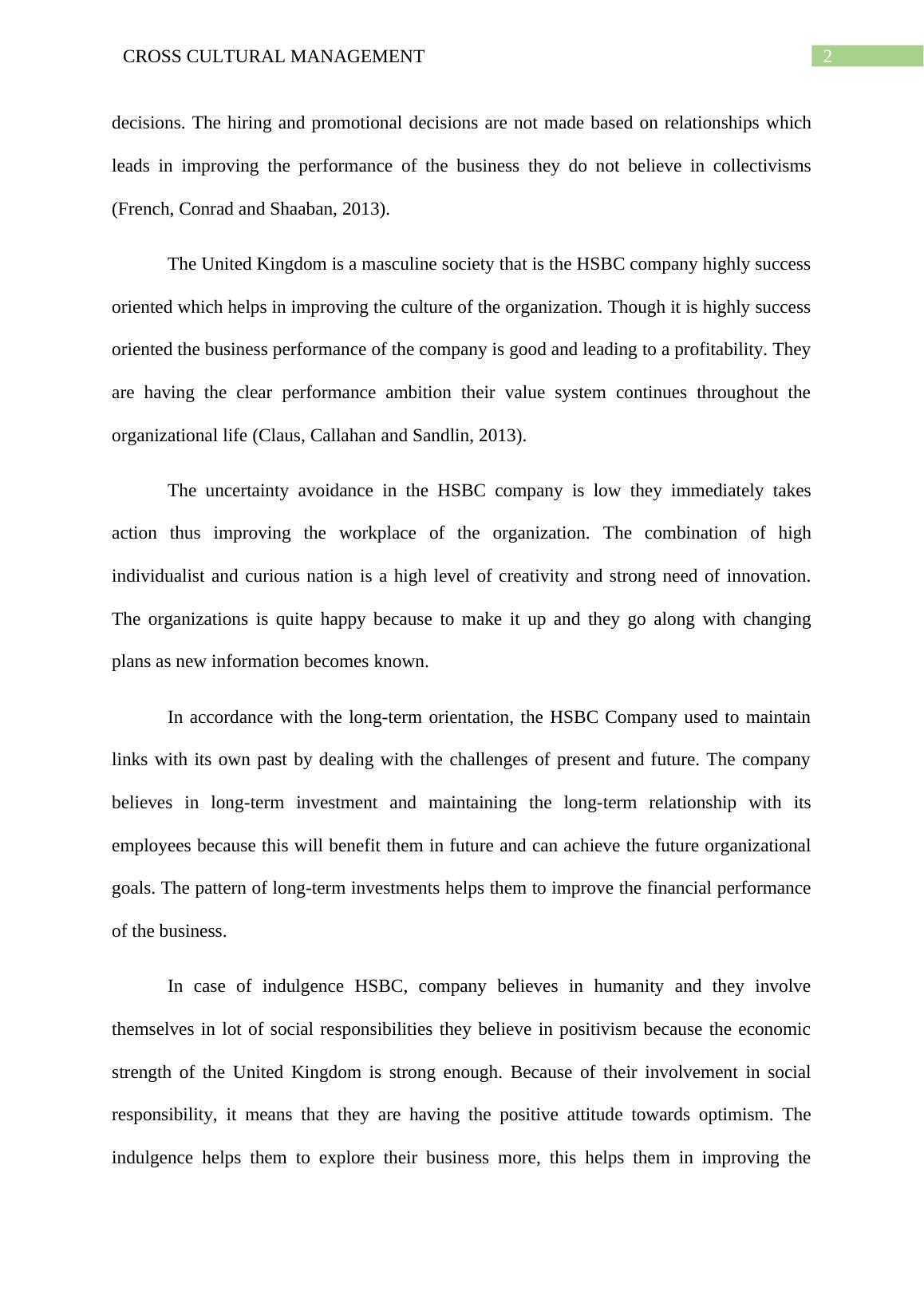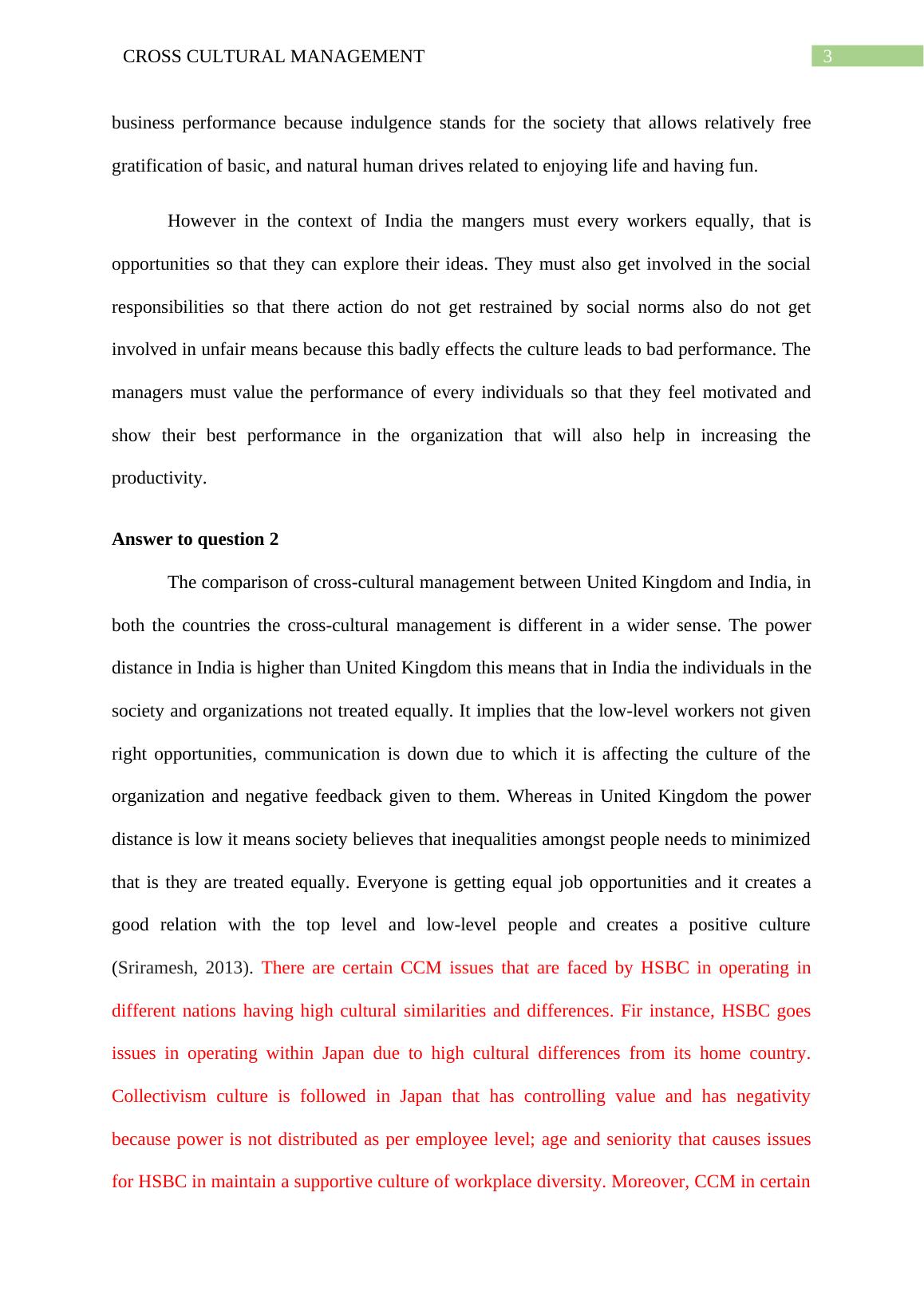Cross Cultural Management
Explaining the impact of Hofstede's model on business performance of a British company and evaluating the pros and cons of implementing the model in cross-cultural management.
15 Pages2525 Words74 Views
Added on 2023-01-03
About This Document
This report analyzes the Hofstede's model in explaining the cross-cultural theoretical aspects that influence the business performance of HSBC. It examines the cultural dimensions of power distance, individualism, masculinity, uncertainty avoidance, long-term orientation, and indulgence in both the United Kingdom and India. The report also highlights the importance of cross-cultural management in improving organizational effectiveness and financial results.
Cross Cultural Management
Explaining the impact of Hofstede's model on business performance of a British company and evaluating the pros and cons of implementing the model in cross-cultural management.
Added on 2023-01-03
ShareRelated Documents
End of preview
Want to access all the pages? Upload your documents or become a member.
Hofstede Cultural Dimension Model and its Application in HSBC Operations in India
|10
|875
|82
Effect of Culture on British Business
|14
|3634
|58
Equality and Diversity Practices in HSBC and Other Banks in the UK
|12
|3210
|222
Managing Across Global Cultures: Cross-Cultural Differences Between China and Australia
|6
|1951
|99
International Business Assignment: Hofstede Cultural Dimension Model
|6
|951
|996
Cross Cultural Management
|5
|1160
|67




